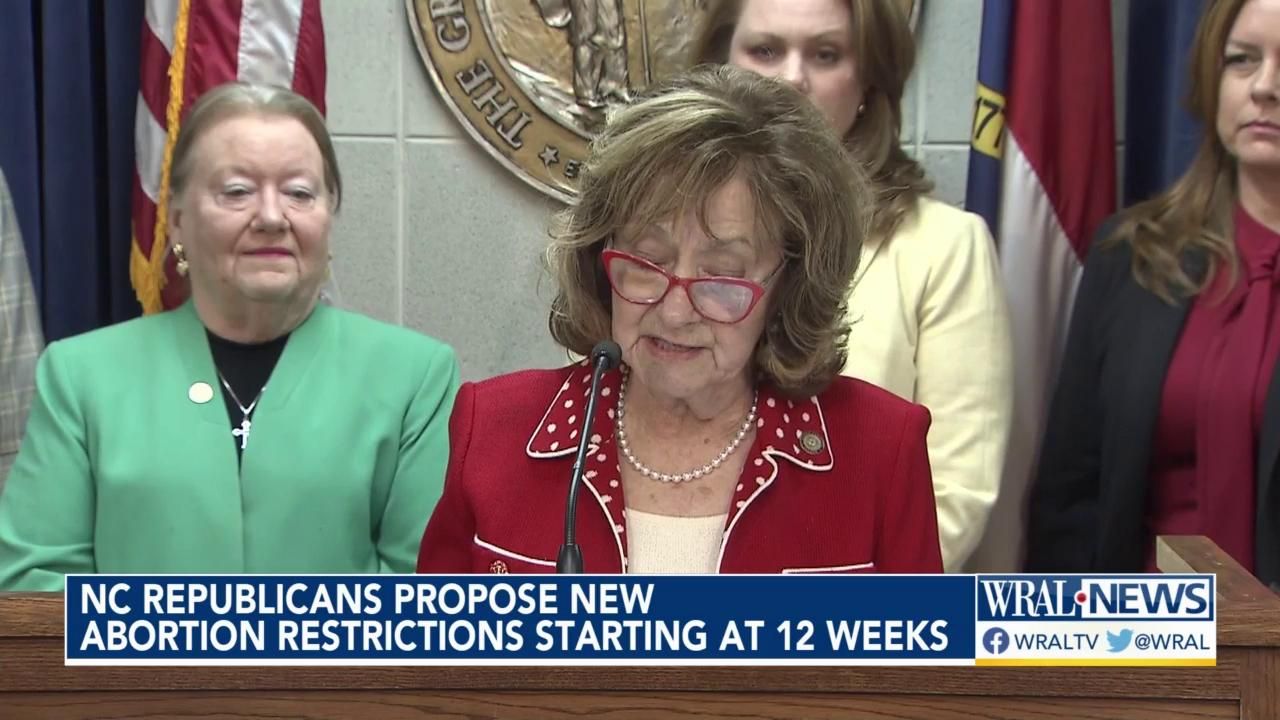A timeline of abortion access in North Carolina

In 1973, North Carolina legislators enacted new abortion laws within a year of the U.S. Supreme Court’s ruling in Roe v. Wade granting Americans abortion rights.
Now, North Carolina legislators are poised to respond to a U.S. Supreme Court ruling again – this time to tighten a ban that has stood for nearly five decades.
Republican state leaders announced Tuesday that they have reached an agreement to pass a bill that bans most abortions after the 12th week of pregnancy. Exceptions would be granted in cases of rape, incest, when severe abnormalities are detected, and when the mother’s life is in physical danger.
The proposal would lower the current state law that was first enacted in 1973, restricting most abortions to the first 20 weeks of pregnancy. Since then, North Carolina lawmakers have enacted regulations around abortion procedures that opponents argue are meant to impede access.
The press conference ended months of speculation about how North Carolina Republicans, who hold a supermajority in the legislature, might respond to the high court’s decision last year to strike down the Roe v. Wade ruling and leave abortion decisions to the states.
With new abortion rules advancing fast, here’s a review of the history of reproductive rights in North Carolina.
1965: U.S. Supreme Court rules that married couples have the right to use contraception.
1972: U.S. Supreme Court rules that unmarried couples also have the right to use contraception.
1973: U.S. Supreme Court issues Roe v. Wade ruling, guaranteeing the right to an abortion; North Carolina bans abortion after the 20th week of pregnancy, with exceptions for the life and health of the mother.
1995: North Carolina requires minors to obtain consent from parent to undergo an abortion procedure.
2013: North Carolina enacts new law requiring people considering abortions to wait 24 hours before undergoing the procedure, with mandated counseling for minors.
2015: North Carolina makes abortion waiting period longer, requires health department to collect more data on abortions in the state.
2016: Opponents challenge law that bans most abortions after the 20th week of pregnancy.
2019: Federal judge rules that North Carolina’s ban on abortions after the 20th week is unconstitutional.
June 2022: U.S. Supreme Court overturns Roe v. Wade ruling, leaving abortion laws to the states.
August 2022: Federal judge reinstates North Carolina’s 20-week abortion ban, with exceptions for urgent medical emergencies, citing the U.S. Supreme Court’s June decision.
January 2023: Republican legislative leaders say they’re trying to round up support for new abortion restrictions.
April 5: State Rep. Tricia Cotham of Mecklenburg County leaves the Democratic Party and joins the GOP, giving Republicans the supermajority they need to override Gov. Roy Cooper’s vetoes.
April 20: House Speaker Tim Moore says House Republicans reach a consensus on the basics of an abortion bill.
May 2: Republicans leaders announce an agreement on a 46-page bill restricting abortion after the 12th week of pregnancy, with exceptions for rape, incest, fetal abnormalities and to protect the mother’s life.
May 3: North Carolina state House of Representatives passes GOP-proposed abortion bill, sending it to the state senate.
May 4: North Carolina state senate passes GOP-proposed abortion bill, sending it to Gov. Roy Cooper.
May 13: Cooper vetoes the bill.
May 17: GOP-controlled legislature overrides Cooper's veto.












